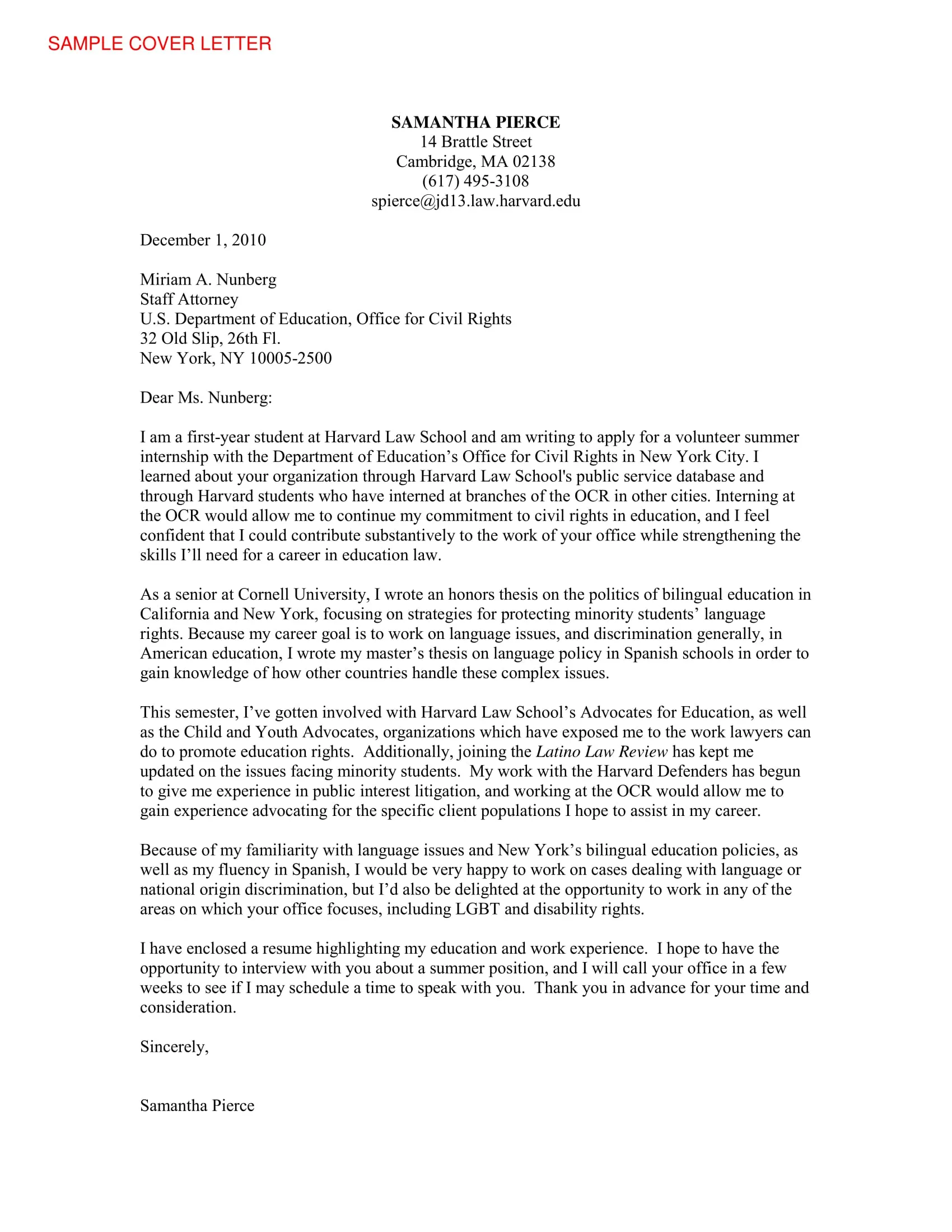Why a Cover Letter Matters for Your Internship
In the competitive landscape of internship applications, a well-crafted cover letter can be your secret weapon. While your resume provides a snapshot of your skills and experience, the cover letter allows you to tell your story, express your personality, and demonstrate genuine interest in the specific opportunity. It’s your chance to make a strong first impression, setting you apart from the countless other applicants vying for the same position. A cover letter provides context to your resume, connecting your past experiences to the internship’s requirements and showing how you can contribute to the company’s success. A compelling cover letter can significantly increase your chances of securing an interview and ultimately landing your dream internship.
Highlighting Your Skills and Experience
Your cover letter is the ideal space to spotlight the skills and experiences most relevant to the internship. Don’t just list your qualifications; illustrate them with concrete examples. Briefly describe past projects, coursework, or volunteer activities that showcase your abilities. Focus on what you achieved and the impact you made. Use action verbs to bring your accomplishments to life and help the hiring manager quickly grasp your capabilities. For instance, if the internship requires strong communication skills, provide an example of a presentation you delivered, a team project you led, or a time you successfully resolved a conflict. This approach provides tangible proof of your capabilities and shows the employer how you can add value to their team.
Tailoring Your Letter to Each Internship
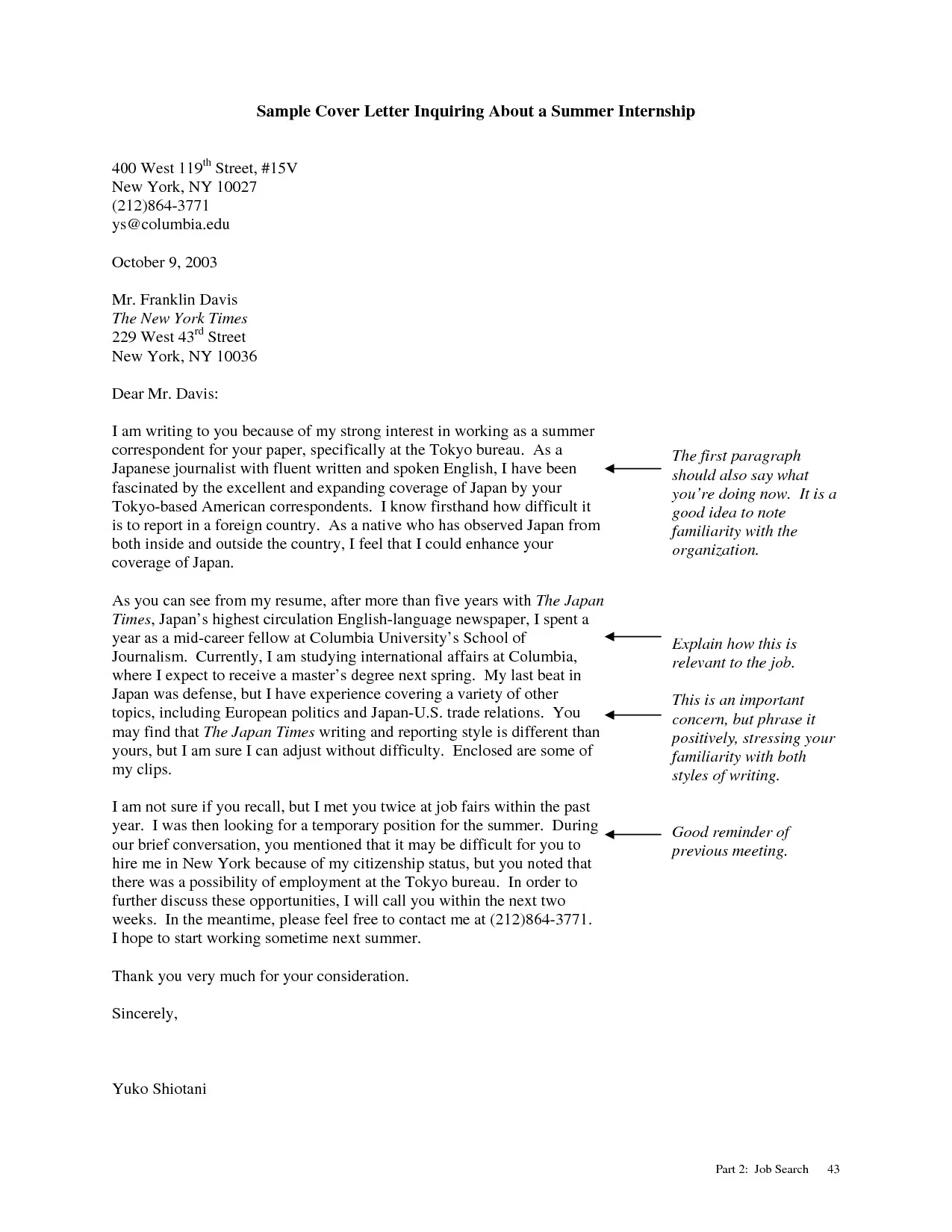
Generic cover letters rarely impress. Each internship is unique, and your cover letter should reflect that. Before you start writing, carefully review the job description, paying attention to the specific skills, qualifications, and interests the company seeks. Then, customize your letter to address these requirements directly. This shows that you’ve taken the time to understand the role and are genuinely interested in the opportunity. Mention the company by name and briefly reference something that caught your eye about their work or mission. By tailoring your cover letter, you demonstrate initiative and show that you are not just sending out a mass application but are specifically targeting this internship.
Top 10 Internship Cover Letter Tips
Crafting a standout cover letter is an art, and these top 10 tips will guide you. From the initial greeting to the final sign-off, each element plays a crucial role in making a memorable impression. By incorporating these suggestions, you’ll significantly increase your chances of catching the hiring manager’s attention and securing an interview. A well-structured and thoughtfully written cover letter can be the key to unlocking the door to your desired internship, setting you on a path to career success. Use these tips to help you craft a cover letter that highlights your skills and experience to help you get your desired internship.
Research the Company Before Writing
Demonstrate your genuine interest by researching the company. Visit their website, read news articles, and explore their social media profiles. Understand their mission, values, and recent projects. This research will inform your cover letter, enabling you to tailor your message and showcase your understanding of their work. Mentioning specific initiatives or projects shows that you’re invested and helps you create a more personalized approach, ultimately making a stronger impact on the hiring manager. Researching the company helps you align your goals with theirs, which proves you are the best candidate.
Start with a Strong Opening
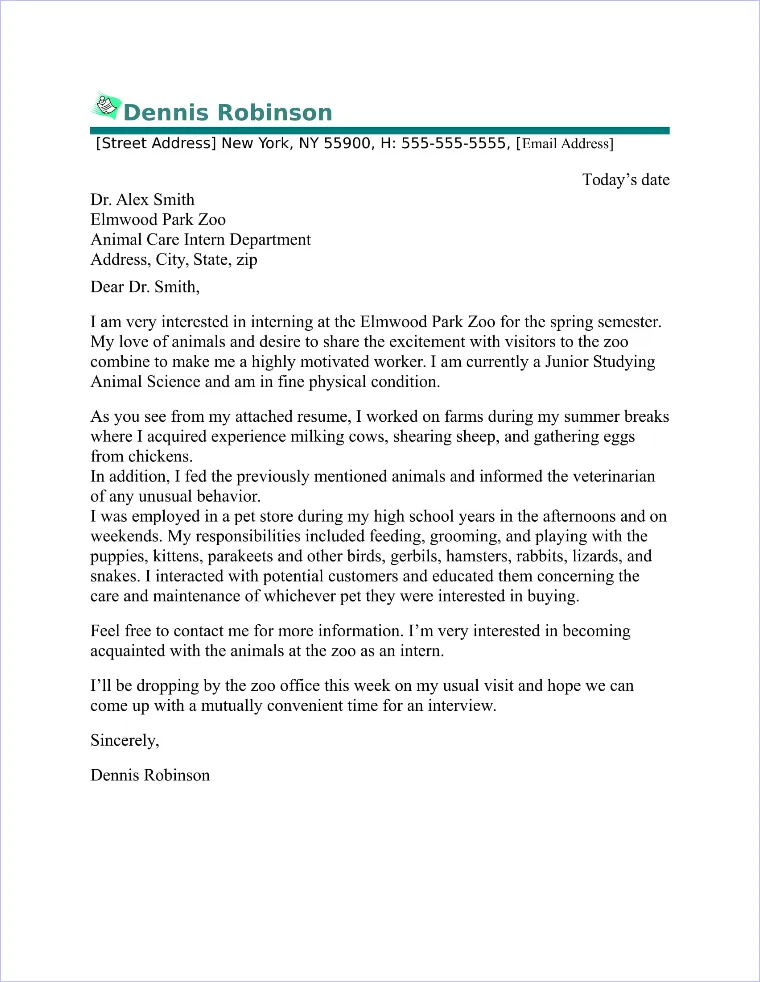
Your opening paragraph is your chance to grab the reader’s attention. Avoid generic greetings; instead, make a statement that captures their interest. Clearly state the position you’re applying for and briefly explain why you’re a perfect fit. You can mention a mutual connection, reference something that sparked your interest in the company, or highlight a relevant achievement. A strong opening sets the tone for the rest of your letter and encourages the reader to continue. Make sure to address the hiring manager by name, if possible, this will help show that you made the extra effort to learn who to address the cover letter to.
Showcase Relevant Skills and Achievements
Focus on the skills and experiences that align with the internship requirements. Highlight your achievements, quantifying them whenever possible. Use examples to illustrate your abilities and show how you can contribute to the company’s goals. Avoid simply listing your responsibilities; instead, describe your accomplishments and how you made a difference. When discussing your achievements, use numbers and data to make your claims more compelling. This approach helps the hiring manager quickly grasp your potential and see how you can add value to their team. Use keywords from the job description to highlight the key skills required for the internship.
Quantify Your Accomplishments
Whenever possible, quantify your achievements to demonstrate the impact of your work. Instead of saying you improved customer service, state that you increased customer satisfaction scores by 15%. Replace vague descriptions with specific numbers and data. This provides concrete evidence of your capabilities and makes your accomplishments more credible and impressive. Quantifying your achievements can make a significant difference in showcasing your value to a prospective employer. This data helps a hiring manager see the value that you bring and also gives them an idea of what to expect.
Demonstrate Your Enthusiasm for the Role
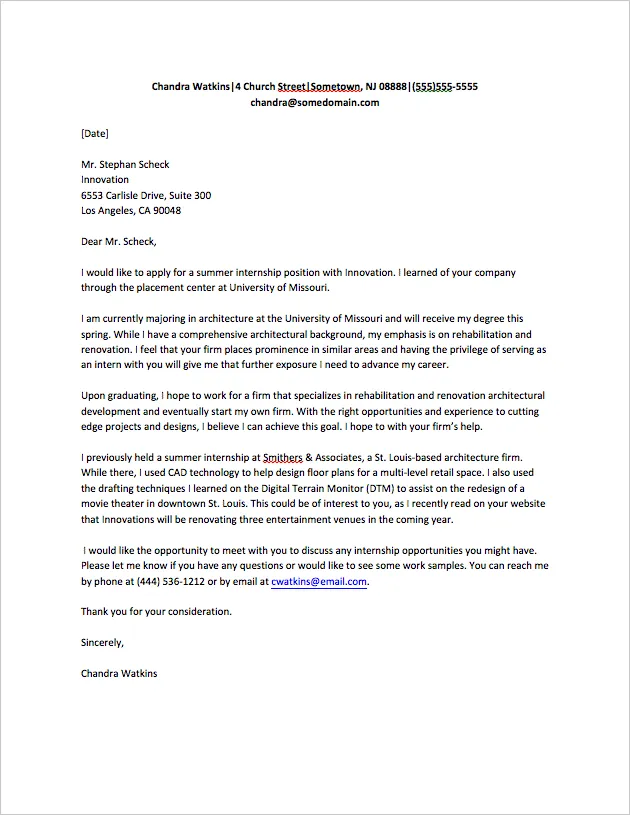
Express your enthusiasm for the internship and the company. Show genuine interest in the work, the team, and the industry. Explain why this specific opportunity excites you and what you hope to gain from the experience. Demonstrate your knowledge of the company’s mission, values, and recent projects. Showing your enthusiasm will convince the hiring manager that you’re not just looking for a job but are passionate about the opportunity. A cover letter that conveys enthusiasm and interest will set you apart from other applicants.
Address the Employer’s Needs
Frame your cover letter around the employer’s needs, rather than just your own. Focus on how you can contribute to their goals and solve their challenges. Tailor your skills and experience to address their specific requirements. Mention how your skills and experiences will benefit the company. By demonstrating your understanding of their needs, you show that you are a solution-oriented candidate. This will illustrate that you have thought about the goals of the company and how you can help them achieve them.
Keep it Concise and Focused
Keep your cover letter concise and focused. Aim for a length of one page. Avoid unnecessary details and stick to the most relevant information. Use clear and concise language, avoiding jargon or complex sentences. Make every word count by conveying your message efficiently and effectively. A well-written cover letter is a sign of respect for the recruiter’s time. Get straight to the point and make your message easy to read. This will help the reader absorb your message quickly.
Proofread and Edit Meticulously
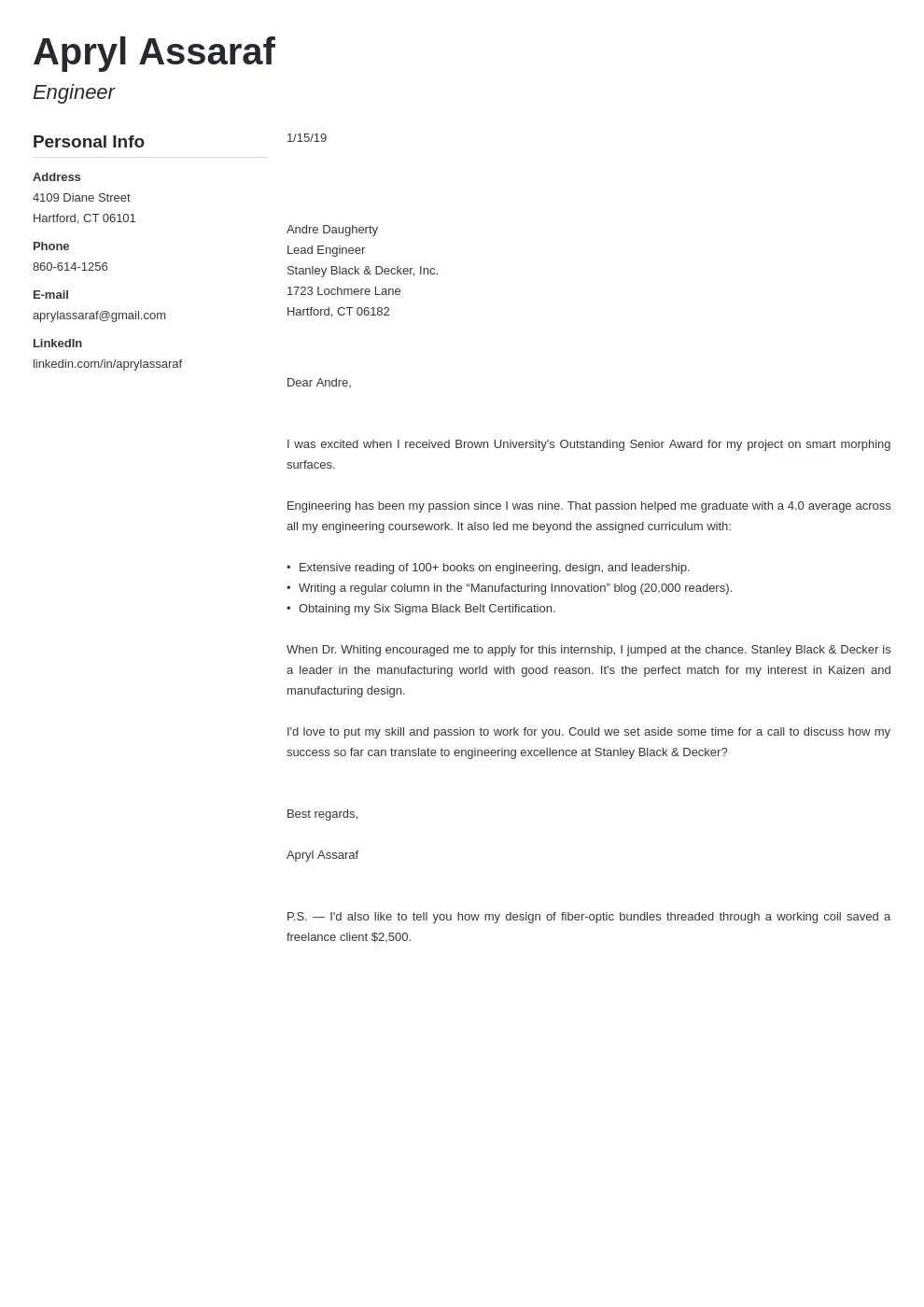
Errors in your cover letter can undermine your credibility. Before submitting your application, proofread your cover letter carefully for any typos, grammatical errors, or formatting inconsistencies. Have a friend or family member review it as well. Fresh eyes can catch mistakes that you might have missed. Ensure your letter is polished and error-free to make a professional impression and it will show that you can pay attention to detail, which will help the chances of getting the internship. This also shows you are professional and are meticulous in the work you do.
Use a Professional Tone and Format
Maintain a professional tone throughout your cover letter. Use formal language and avoid slang or casual expressions. Follow a standard business letter format, with a clear heading, appropriate salutation, and closing. Ensure that your cover letter is easy to read, with proper spacing and clear formatting. A professional tone and format will help you make a positive impression and showcase your ability to communicate professionally. This will show that you are able to communicate with employees and others in the company.
Close with a Call to Action
End your cover letter with a strong call to action. Clearly state your interest in an interview and provide your contact information. Express your enthusiasm for the opportunity and reiterate your eagerness to contribute to the company’s success. Thank the reader for their time and consideration. The closing should be confident and leave a lasting impression, encouraging the hiring manager to take the next step. This shows initiative on your part to get the job.
Best Practices for Internship Cover Letters
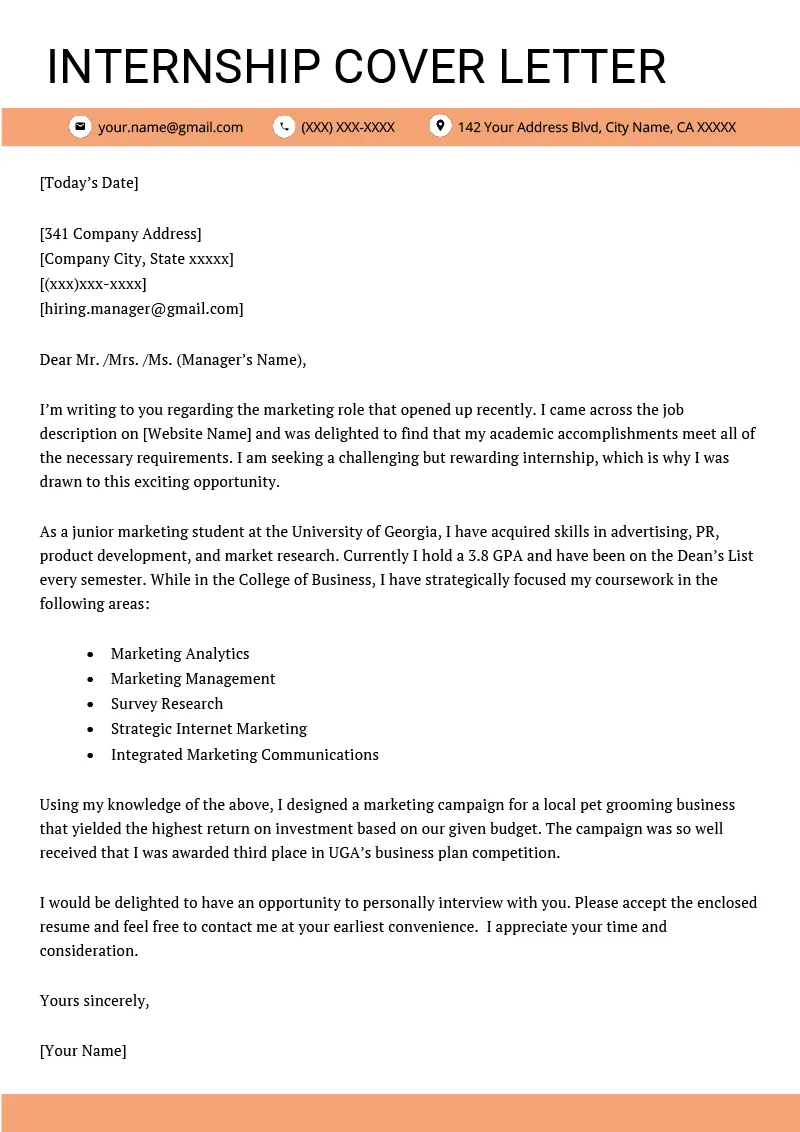
In addition to the top 10 tips, consider these best practices for your internship cover letter. These additional strategies will elevate your application, increasing your chances of getting noticed. Focus on highlighting your achievements and showing how your skills align with the internship’s requirements. Use these best practices to help show the hiring manager that you are the best fit for the internship.
Formatting Your Cover Letter for Impact
Formatting your cover letter appropriately can make a significant difference in readability and impact. Use a standard font like Times New Roman, Arial, or Calibri. Keep your font size between 10 and 12 points. Use single spacing with a blank line between paragraphs. Maintain consistent formatting throughout the document. Use bullet points to list accomplishments or skills. Formatting it properly will help it stand out and be easy to read. Remember to keep it clear and concise.
Common Mistakes to Avoid in Your Cover Letter
Certain mistakes can damage your chances of getting an internship. Avoid generic language, as it shows a lack of effort. Don’t ramble or be overly verbose. Never include lies or exaggerations; always be truthful. Avoid typos and grammatical errors. Do not simply repeat your resume; instead, provide context and expand on your achievements. By avoiding these common mistakes, you can make a positive impression and show yourself as a serious applicant.
Examples of Strong Internship Cover Letters
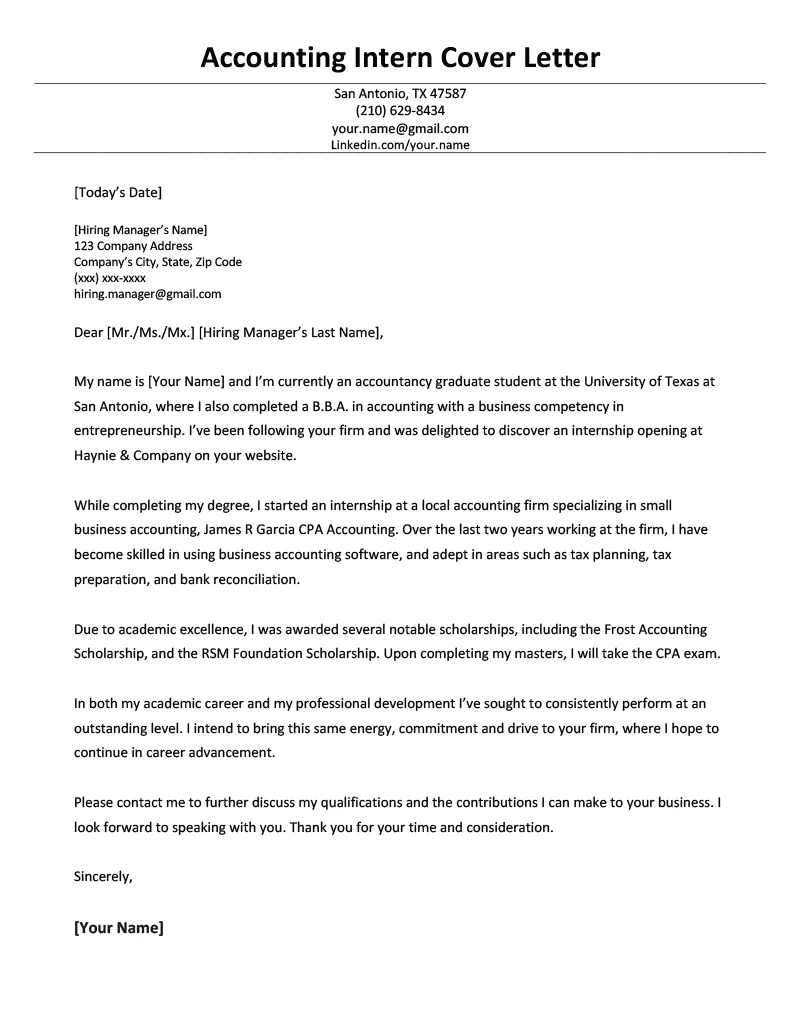
Reviewing examples of successful internship cover letters is a great way to understand the best practices. Look for examples online that align with your field and experience level. Analyze how the writers highlight their skills, tailor their letters, and showcase their enthusiasm. Use these examples as a guide to create your own cover letter. Remember to adapt the format and content to your specific situation to make your application unique and effective.
Final Thoughts and Next Steps
Crafting a compelling cover letter is a crucial step in your internship application process. By implementing these tips and best practices, you can significantly improve your chances of securing an interview and landing your desired internship. Take the time to tailor your letter to each opportunity, highlight your skills, and show your enthusiasm. With a well-crafted cover letter, you’ll be well on your way to a successful internship. Don’t be afraid to seek feedback from career counselors or mentors. Good luck with your internship search!
